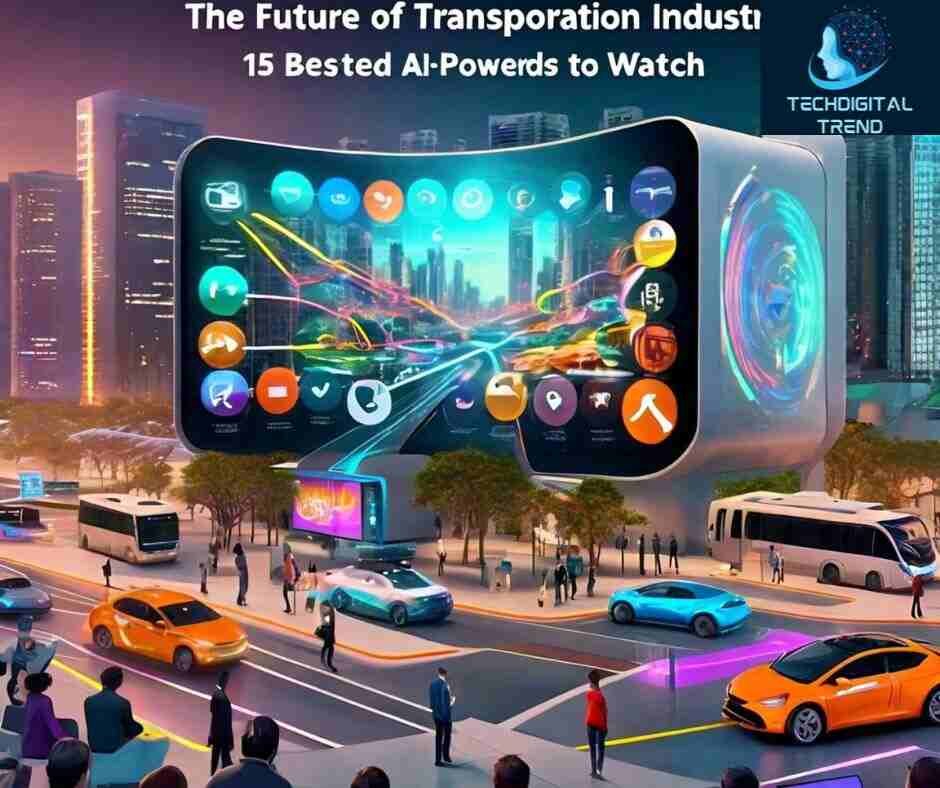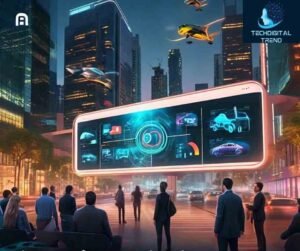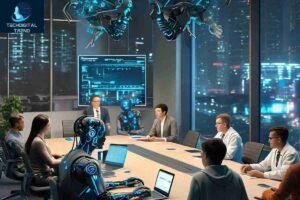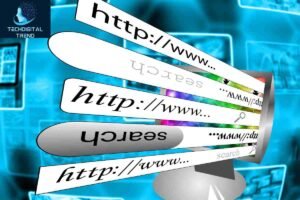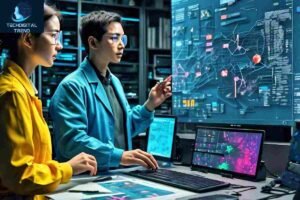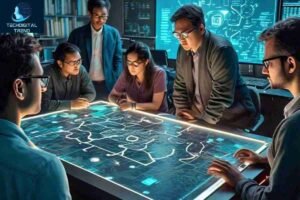Table of Contents
ToggleTransportation
The transportation industry is on the cusp of a revolution, thanks to the rapid advancements in Artificial Intelligence (AI) technology. In 2024, we’re seeing AI being integrated into various aspects of transportation, from autonomous vehicles to smart traffic management. In this article, we’ll explore the seven ways AI is transforming the transportation industry and what this means for the future.
1. Autonomous Vehicles
One of the most significant developments in AI-powered transportation is the rise of autonomous vehicles. These self-driving cars and trucks are equipped with advanced sensors and AI algorithms that enable them to navigate through roads without human intervention. With the ability to detect and respond to their surroundings in real-time, autonomous vehicles are set to revolutionize the way we travel.
2. Smart Traffic Management
AI is also being utilized to lessen traffic jams and optimize traffic flow. Traffic patterns are analyzed and traffic signal timings are optimized by smart traffic management systems using real-time data and AI algorithms. As a result, travel times are shortened, emissions are decreased, and safety is increased.
3. Predictive Maintenance
AI-powered predictive maintenance is another area where transportation companies are seeing significant benefits. By analyzing data from sensors and maintenance records, AI algorithms can predict when equipment or vehicles are likely to fail. This enables companies to schedule maintenance and reduce downtime.
4. Route Optimization
AI is also being used to optimize routes for delivery trucks, taxis, and ride-sharing services. By analyzing traffic patterns, road conditions, and other factors, AI algorithms can determine the most efficient routes, reducing fuel consumption and lowering emissions.
5. Improved Safety
AI is also being utilized in the transportation sector to increase safety. For instance, AI-powered systems are able to identify possible safety risks, such people or animals crossing the road, by analyzing data from sensors and cameras.
6. Enhanced Customer Experience
AI is also being used to enhance the customer experience in transportation. For example, AI-powered chatbots can help passengers navigate through airports or train stations, while AI-powered recommendation systems can suggest the best routes and modes of transportation.
7. Supply Chain Optimization
Finally, AI is being used to optimize supply chains in the transportation industry. By analyzing data from sensors, GPS, and other sources, AI algorithms can determine the most efficient routes and schedules for delivery trucks, reducing costs and improving delivery times.
8. Autonomous Shipping
Autonomous ships and boats are being developed to revolutionize the maritime industry. These vessels use AI and sensors to:
- Navigate through waters, avoiding obstacles and optimizing routes
- Detect and respond to weather conditions, such as storms or fog
- Communicate with other vessels and shore-based stations
- Carry out duties like loading and unloading material.
9. AI-Powered Logistics
AI is being used to optimize logistics in the transportation industry, including:
- Predictive analytics to forecast demand and adjust supply chains accordingly
- Real-time tracking and monitoring of shipments
- Automated inventory management and optimization
- Route optimization for delivery trucks and vans
10. Enhanced Security
AI-powered security systems are being used to enhance security in the transportation industry, including:
- Utilizing facial recognition technology to detect possible security risks
- Cyberattack detection and prevention systems using intrusion detection
Anomaly detection systems to identify unusual behavior - Encryption and secure data transmission
11. Improved Accessibility
AI is being used to improve accessibility in the transportation industry, including:
- AI-powered wheelchair ramps to help passengers with disabilities board vehicles more easily
- Sign language interpretation systems to help passengers with hearing impairments communicate with transportation staff
- AI-powered chatbots to assist passengers with special needs
- Accessible route planning and navigation
12. Environmental Benefits
AI is being used to reduce the environmental impact of the transportation industry, including:
- Electric and hybrid vehicles to reduce emissions
- Route optimization systems to reduce fuel consumption
- Predictive maintenance to reduce waste and improve efficiency
- Green logistics and supply chain management
13. Traffic Management
AI is being used to improve traffic management, including:
- Real-time traffic monitoring and prediction
- Smart traffic signals to optimize traffic flow
- Route optimization for drivers
- Parking management systems
14. Vehicle Maintenance
AI is being used to improve vehicle maintenance, including:
- Using predictive maintenance to identify possible problems before they arise
- Automated maintenance scheduling and optimization
- Real-time monitoring of vehicle performance
- AI-powered diagnostic tools
15. Passenger Experience
AI is being used to improve the passenger experience, including:
- Personalized travel recommendations
- Real-time information and updates
- AI-powered chatbots to assist passengers
- In-transit entertainment and education
In conclusion,
AI is revolutionizing the transportation sector in several areas, including intelligent traffic control and driverless cars. Technology is lessening its influence on the environment while simultaneously enhancing accessibility, efficiency, and safety. We should anticipate seeing even more cutting-edge AI applications in the sector as it develops further.
The key takeaways from this article are:
- AI is being used in autonomous vehicles, smart traffic management, predictive maintenance, and route optimization.
- AI is improving safety, efficiency, and accessibility in the transportation industry.
- AI is reducing environmental impact by optimizing routes and improving fuel efficiency.
- AI is being used in logistics and supply chain management to improve efficiency and reduce waste.
- AI is enhancing the passenger experience through personalized travel recommendations and real-time information.
As the transportation industry continues to evolve, it’s essential to stay informed about the latest developments in AI-powered transportation. Whether you’re a transportation company, a policymaker, or simply a commuter, understanding the benefits and applications of AI in transportation can help you make informed decisions and stay ahead of the curve.
Open this link: Tap to here

